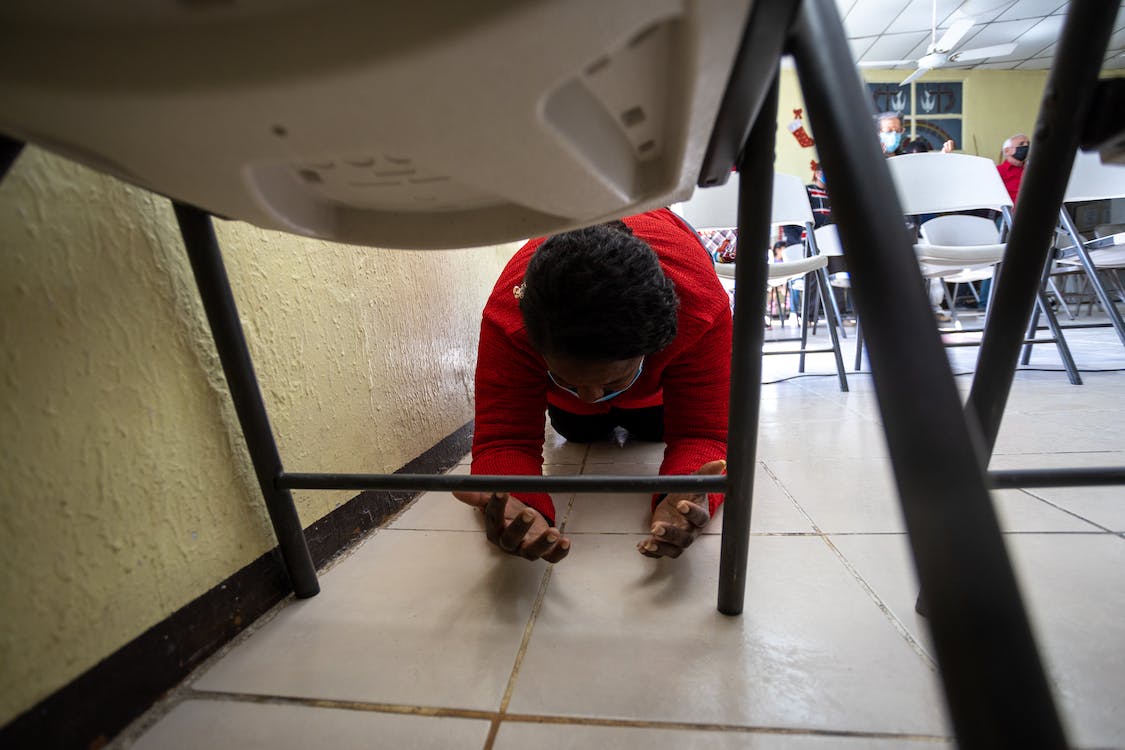
A woman feeling confused. (Photo by Monstera Production from Pexels)Have you ever considered whether you are under trial or facing the consequences of your decisions in life?
Some of us think that whenever we face hardships in life, it is all about God testing our faith, yet most of the time, God wants us to realize that things happen because of our shortcomings and pride, thinking that we can handle everything on our own.
However, how do we determine whether it is a trial or a consequence of our actions? Maybe we also misunderstood that trials and consequences are most likely the same.
Let us look at this blog as we uncover the differences between trials and consequences.
Why do we need to know the difference?

“Truth” (Photo by Markus Winkler from Pexels)Knowing the difference between trials and consequences helps us handle tough times with a strong faith. Trials are like strict tests God allows us to go through to strengthen our faith.
They’re not punishments; they’re like challenging classes that teach us to trust God more. Consequences, though, are the results of what we do, good or bad. Understanding this leads us to be accountable for our mistakes and ask God to help us improve.
Spotting the difference helps us make sense of things, especially when life doesn’t seem fair. It teaches us when to ask for strength to get through hard times and when to say sorry for our wrongs.
By figuring out if we’re facing a trial or dealing with a consequence, we can react correctly, which pleases God and keeps our faith on track.
What is a trial?

A student taking a test. (Photo by Pixabay from Pexels)Trials are the tests of our faith and part of the process.
James 1:2-4 says, “ Consider it pure joy, my brothers and sisters, whenever you face trials of many kinds because you know that the testing of your faith produces perseverance. Let perseverance finish its work so you may be mature and complete, not lacking anything.”
God uses trials to shape our character so we can be equipped to do our purpose. It develops a godly character. It is where our faith is shaken, and God wants us to endure hardship and persevere, for it produces hope that never disappoints.
The term trial is also linked with tests, tribulations, troubles, and temptations. All these are used to complete God’s good work in us.
Thus, despite our obedience to Christ, we are still not excused from facing trials here on earth. The Bible noted that we should rejoice whenever our faith is tested because this is where we can realize that we are nothing without God.
Furthermore, trials are the process of sanctification since we are set apart for God’s purpose and suitable to live for His glory. The result of overcoming trials would lead us to praise the Lord even more, for His love and faithfulness endure forever, even amidst our trials.
How do we deal with trials?

A woman praying on her knees. (Photo by Davide Peinado from Pexels)Facing trials can be challenging, but they’re a part of every believer’s journey. Here’s how we can navigate these difficult times with faith and grace.
- Seek Understanding: Start by praying for wisdom to recognize if you’re facing a trial and for insight into what God may be teaching you through this experience.
- Stay Rooted in the Word: Dive into scripture for comfort and guidance; verses like James 1:2-4 encourage us to find joy in trials because of the endurance they produce.
- Lean on Community: Do not go it alone—share your struggles with a trusted faith community that can offer support, prayer, and practical help.
- Maintain a Heart of Worship: Keep praising God despite the circumstances. Worship refocuses our perspective from our problems to God’s greatness.
- Embrace Growth: Acknowledge that trials can strengthen your faith. Look for how you are growing closer to God and becoming more resilient.
- Exercise Patience: Be patient with the process. God’s timing is perfect, even if it doesn’t align with your timeline.
- Stay Hopeful: Hold onto hope, knowing that trials are temporary and God has a good plan for your life, plans to prosper you and not to harm you (Jeremiah 29:11).
- Reflect and Act: After the trial, reflect on what you’ve learned and how you’ve changed. Use this knowledge to act and live out your faith with new strength.
What is a “consequence”?

A silhouette of a man. (Photo by Dom Gould from Pexels)On the other hand, consequences are the result of our disobedience. Every decision we make against God’s will and command has consequences.
It results from our failure to obey God during trials of temptations. For instance, Adam and Eve were given one golden rule in the Garden of Eden: they could eat everything they wanted except for the tree at the center.
Then, the serpent tempts Eve to eat the fruit, and she fails to obey God. She even encouraged her husband to do the same.
Thus, they were banned in the Garden of Eden, destroying their relationship with God. That is the consequence of our disobedience to God. Our sins have inevitable consequences that we have to face.
But the good news is that we do not have to live in our sins because God is faithful and just forgives us when we confess our sins to Him. (1 John 1:9)
We might wonder why we still have to face the consequences when we are already forgiven. God is just. In every action, there are still impacts that we have to face.
How do we face our consequences?

A woman raising her hands as an act of worship. (Photo by Luis Quintero from Pexels)When we face the consequences of our actions, it’s a chance for real growth and learning. It’s essential to handle these situations with honesty and a desire to improve.
- Acknowledge the mistake: Accept responsibility for your actions without making excuses. Recognizing where you went wrong is the first step toward making things right.
- Ask for forgiveness: If your actions have hurt others, humbly ask for their forgiveness, and be prepared to give them time to heal if needed.
- Seek God’s forgiveness: Confess your wrongdoing to God in prayer, relying on His mercy and grace to cleanse you from guilt.
- Make amends: Where possible, take practical steps to rectify the situation. If you’ve caused harm, do what you can to repair it.
- Learn from the experience: Reflect on what led to the consequences and consider what you can learn to avoid similar mistakes in the future.
- Change your behavior: Put the lessons you’ve learned into action. Show through your actions that you have grown from the experience.
- Move forward: Do not dwell on the past. Once you’ve made amends, trust in God’s forgiveness and move forward with a renewed spirit and a commitment to do better.
- Seek support if needed: If you’re struggling to cope with the aftermath of your actions, do not hesitate to seek counsel from a pastor, a trusted friend, or a Christian counselor.
Trials & consequences could lead to growth
In our journey to discern trials from consequences, it’s crucial to grasp that while both can serve as instruments of personal growth, they emerge from different origins and require distinct responses.
Trials are a natural part of our spiritual walk, opportunities God allows to fortify our faith and character. They aren’t punishments but divine assignments that help us rely more on God’s strength than our own.
Consequences, however, stem from our own choices—reminders that our actions have weight and can lead us away from God’s best for us. Discerning whether we are experiencing a trial for growth or facing consequences that provide opportunities for learning is essential.
We can turn problems into triumphs and transform the outcomes into stepping stones for a wiser, more aligned walk with Christ. This discernment is vital, for it shapes our actions and the essence of our journey with the Lord.
Republished with permission from Blogs.crossmap.com, featuring inspiring Bible verses about What’s the difference between trials and consequences?.
